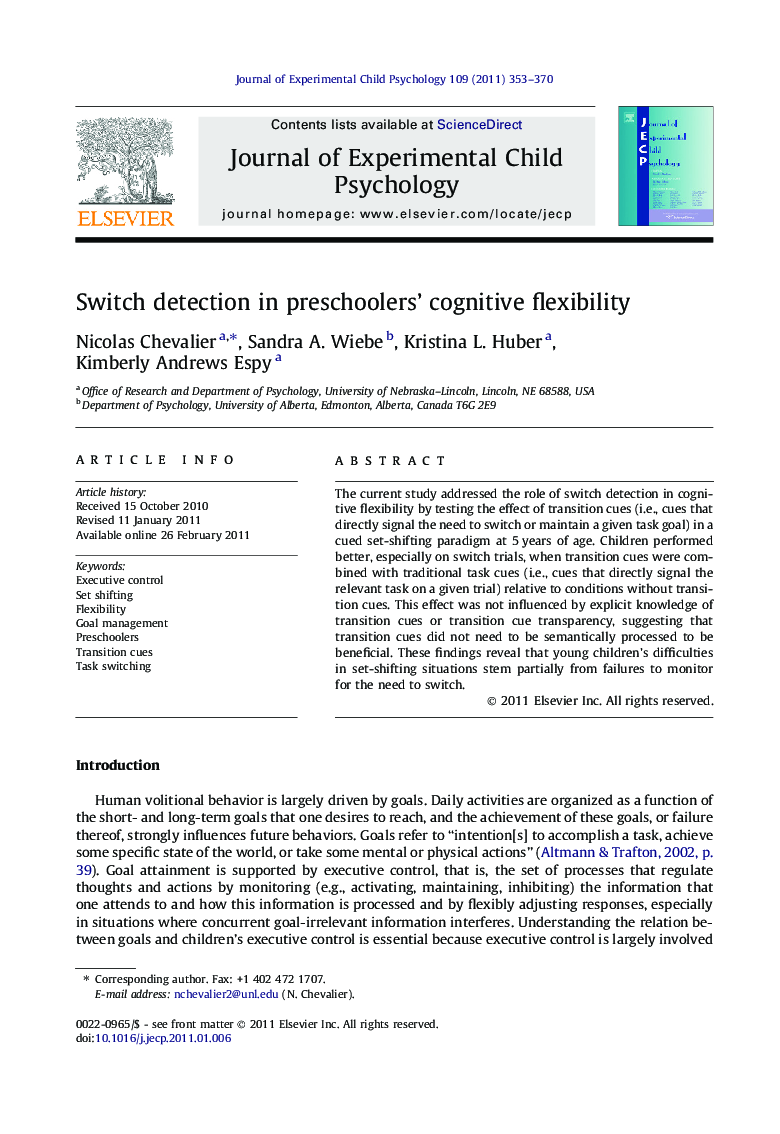| Article ID | Journal | Published Year | Pages | File Type |
|---|---|---|---|---|
| 918569 | Journal of Experimental Child Psychology | 2011 | 18 Pages |
The current study addressed the role of switch detection in cognitive flexibility by testing the effect of transition cues (i.e., cues that directly signal the need to switch or maintain a given task goal) in a cued set-shifting paradigm at 5 years of age. Children performed better, especially on switch trials, when transition cues were combined with traditional task cues (i.e., cues that directly signal the relevant task on a given trial) relative to conditions without transition cues. This effect was not influenced by explicit knowledge of transition cues or transition cue transparency, suggesting that transition cues did not need to be semantically processed to be beneficial. These findings reveal that young children’s difficulties in set-shifting situations stem partially from failures to monitor for the need to switch.
